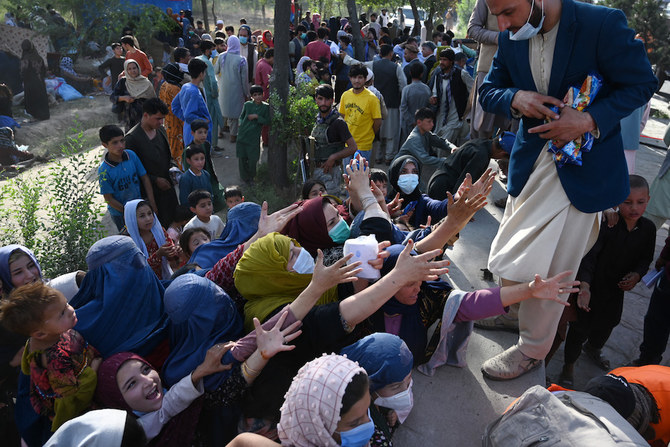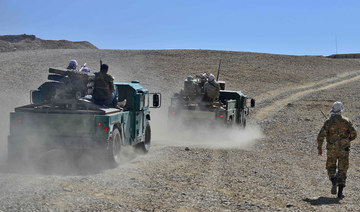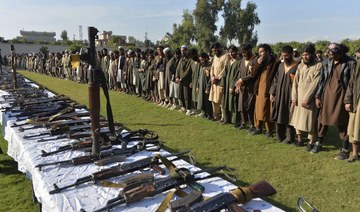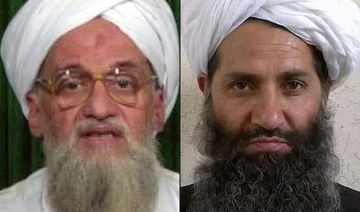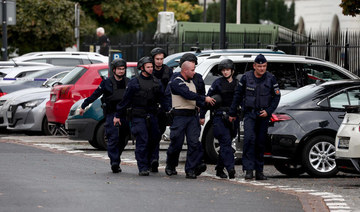DUBAI: At the end of August, with the Taliban in control of most provinces of Afghanistan, UN Secretary-General Antonio Guterres cautioned that the country’s humanitarian and economic crises were getting worse, despite evacuation flights for civilians from Kabul airport coming to an end.
Expressing his concern over the situation and the threat of a total collapse in basic services, he said: “Now more than ever, Afghan children, women, and men need the support and solidarity of the international community.”
The circumstances suggest Guterres was right on the money. The combined effects of a severe drought, conflict and the COVID-19 pandemic have made even the simplest of preparations for winter in Afghanistan difficult for international aid organizations.
The UN has said that 18 million out of Afghanistan’s population of 38 million are facing a humanitarian disaster, with the potential of another 18 million joining them.

A senior official of the UN World Food Program has told Arab News of the organization’s concerns, just days after it appealed for money to purchase and “preposition” food for millions of Afghans before winter snows cut off access roads to them.
Mageed Yahia, the WFP’s UAE country director and representative for the Gulf Cooperation Council region, said: “We need money urgently. As I speak, we need around $200 million just to get us from September to December, or our pipeline will break. As early as October, our pipeline of wheat will run out.”
He identified the funds crunch as the biggest challenge facing the program, the other ones being lack of security and stability, and the weather. He said even $200 million was a “drop in the ocean” in comparison with the money required to cover actual needs. A WFP estimate has put the country’s total food-funding requirements for this year at $559 million.
Yahia warned that if widespread hunger was not prevented in Afghanistan, it could lead to mass migration and more conflicts, the costs of which would dwarf the amount currently sought by the WFP.
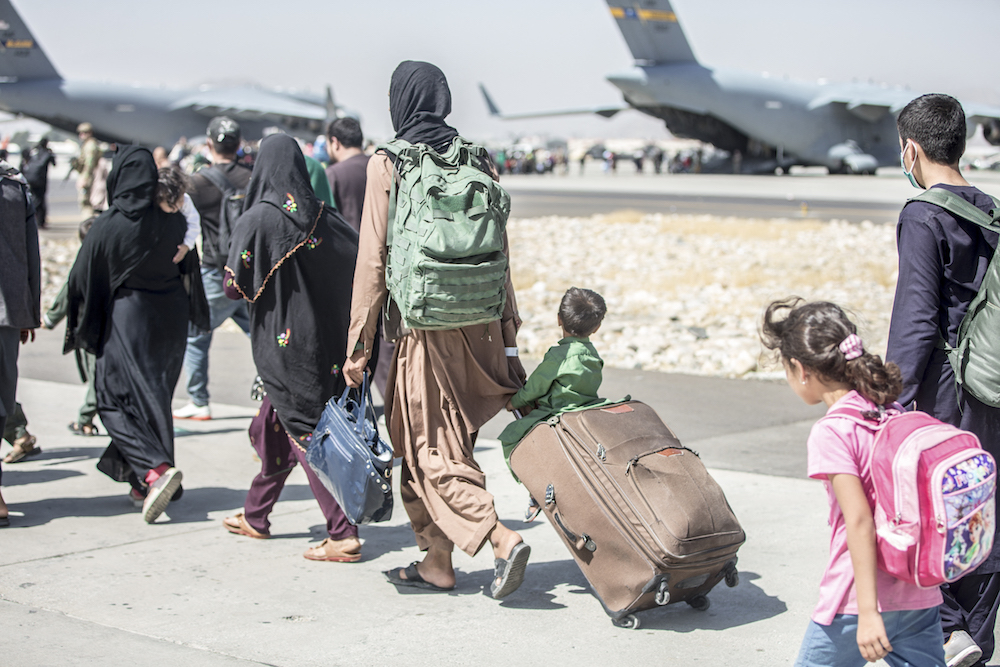
A child(C) looks at the aircraft as he is strolled towards his flight during an evacuation at Hamid Karzai International Airport, Kabul, Afghanistan, on August 24, 2021. (AFP/File Photo)
“I think it is important to realize that the cost to the international community would be far less if the problem was tackled now instead of being allowed to grow out of control,” he added.
Citing Syria as a cautionary tale, he pointed out that in 2015, when the WFP ran out of funds in the war-torn Arab country, large numbers of people used rickety boats to cross the Mediterranean Sea and reach Europe.
In Afghanistan, the WFP has a staff of 300, including locals and foreign nationals, who operate from sub-offices in Kabul, Jalalabad, Faizabad, Mazar-e-Sharif, Kandahar, and Herat.
UN officials have said the turmoil in the country has not affected WFP operations and that all programs are running according to plan.
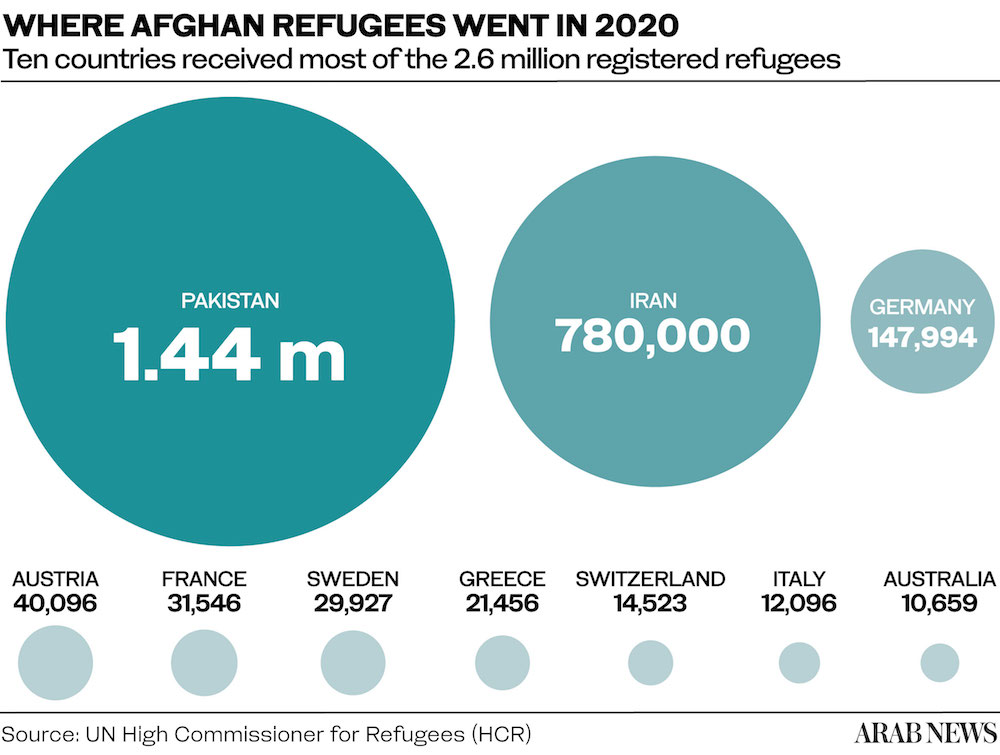
The WFP said it remained “dedicated to maintaining its guiding principles of humanity, impartiality, neutrality, and operational independence.”
At the same time, Yahia noted that “protection is being provided to WFP food convoys, buildings, and staff” in Afghanistan.
Before the arrival of Afghanistan’s bitterly cold winter season, the WFP typically starts planning several months in advance. Yahia described the process as “winterization — buying food from wherever it is available closest, be it in Pakistan, Kazakhstan, or even sometimes Afghanistan, then transporting it and, finally, stocking it.”
So far, high summer temperatures have masked the hardships that lie ahead for the Afghan people in winter. Summer is the time of year when the WFP “prepositions” food stocks in warehouses and with communities throughout Afghanistan. The food is then distributed to needy people before access to them is cut off by the winter snows.

Afghan people sit inside a US military aircraft to leave Afghanistan, at the military airport in Kabul on August 19, 2021 after Taliban's military takeover of Afghanistan. (AFP/File Photo)
But the hot summers were also to blame for what he said was Afghanistan’s second-biggest drought in the past three years.
“We are talking about more than 40 percent of the country. Crops have been lost to this drought, leaving families with incomes that are not enough even to buy food,” he added.
INNUMBERS
* 14m - Afghans who are food insecure.
* $200m - Money needed by WFP until end of 2021.
* 550,000 - Afghans displaced by conflict this year.
* 2m - Malnourished children.
Over half of Afghanistan’s population lives below the poverty line because conflict and lack of safety have cut off entire communities from livelihood opportunities.
At least 14 million people have been identified as food insecure, including 550,000 who have been displaced by conflict since the beginning of the year.
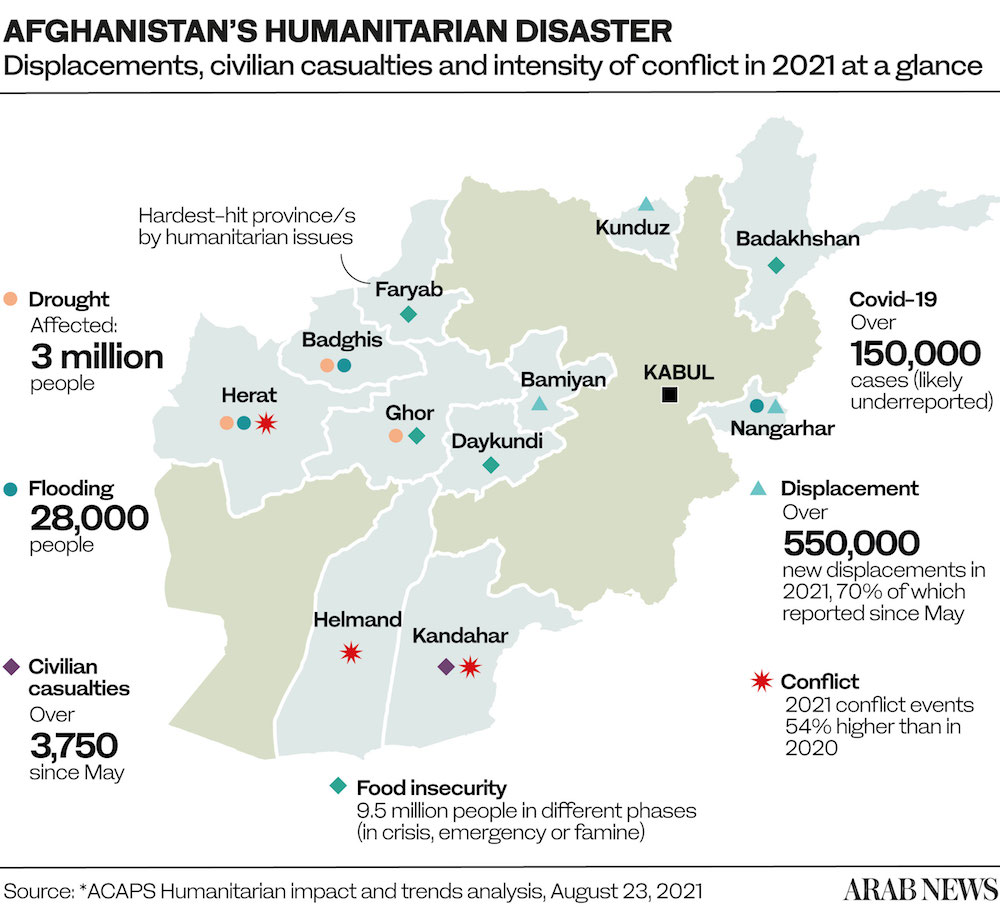
“The conflict did not materialize in just the last few weeks. It has been ongoing for several years. This has resulted in large population displacements,” Yahia said.
The hunger emergency comes on top of a humanitarian crisis prompted by the withdrawal of US and NATO troops and the rapid reconquest of the country by the Taliban.
The UN has pointed out that 18 million Afghans depend on international aid for survival. Getting that aid into the country during a turbulent period has proved enormously difficult as commercial aircraft have been unable to land at Kabul airport.
Displacement has resulted in large numbers of Afghans having no access to work and food supplies, making them entirely dependent on WFP assistance, Yahia added. COVID-19 and its consequences have also affected the lives and livelihoods of people, who struggle to put food on the table even in normal times.
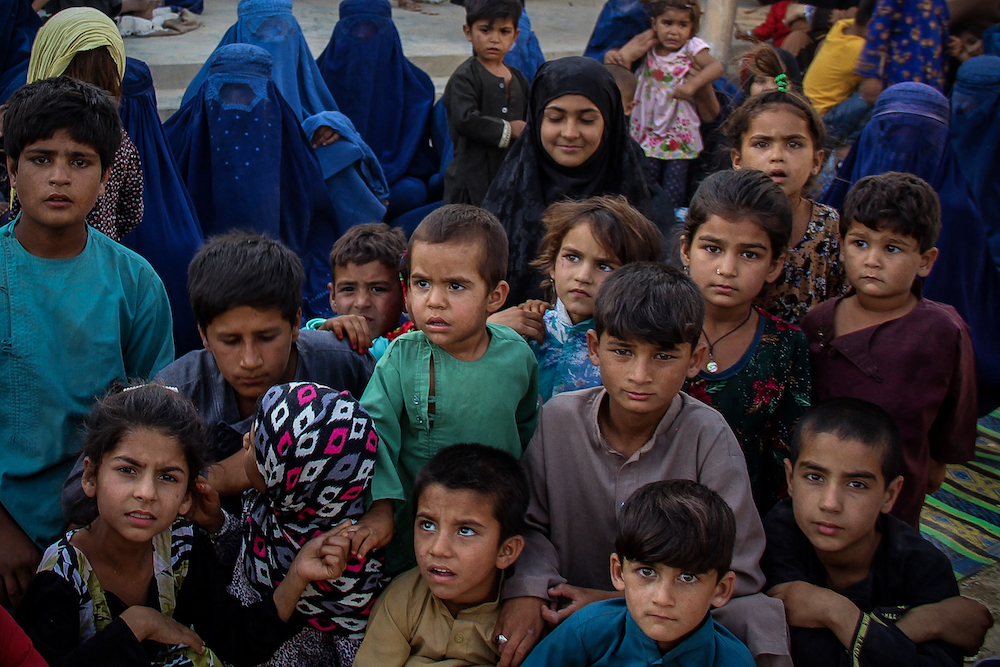
Children from the Internally displaced Afghan families arriving from districts of Khan Abad, Ali Abad and Imam Sahib who fled the fighting. (AFP/File Photo)
He noted that following the withdrawal of US and Western troops, many Afghans had been unable to access their money in banks. “Now the banks have opened, but there is limited availability of cash. People can withdraw a maximum of $200 per week. We don’t know for how long the banks will stay open, whether the limits on cash withdrawal will be lifted or tightened.
“If the humanitarian situation deteriorates further, leading to starvation, the world will realize that the conflict goes beyond Afghanistan,” he said.
The WFP, which has had a presence in Afghanistan for almost the last 60 years, distributes food parcels to nearly 400,000 people displaced internally by conflicts over the decades.
It is also assisting 600,000 families affected by the economic impact of COVID-19 by giving each nearly $80 to cover food needs for around two months. Another program provides free meals to schoolchildren.
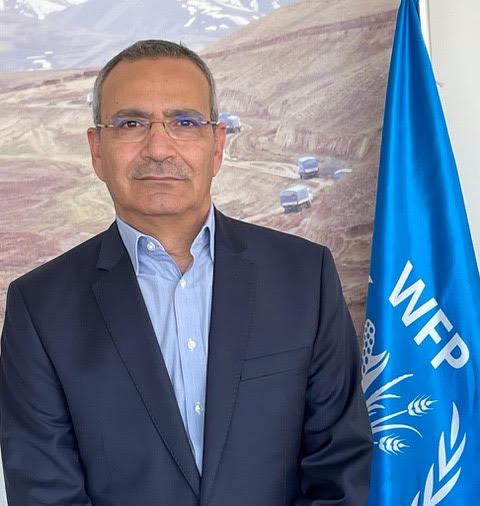
Mageed Yahia, the World Food Program's UAE country director and representative to the GCC region, warns that many Afghan families have been left without enough income to buy food after drought destroyed their crops. (Supplied)
“So, in total, 5 million people are benefiting from WFP assistance, with food, cash, school meals, and nutritious products for those who are suffering from moderate malnutrition.
“We are scaling up our programs to reach 14 million people in Afghanistan. In the next few weeks, we need to scale up by another 9 million,” Yahia added.
The UN is planning to hold a high-level conference on aid for Afghanistan on Sept. 13 in Geneva, which will be attended by Guterres.
His spokesman, Stephane Dujarric, said: “The conference will advocate for a swift scale-up in funding so the lifesaving humanitarian operation can continue; and appeal for full and unimpeded humanitarian access to make sure Afghans continue to get the essential services they need.”
On Friday, according to the Emirates News Agency, the UAE sent a plane carrying urgent medical and food aid to Afghanistan, and a Qatar foreign ministry official said Doha was working to facilitate the opening of humanitarian corridors. The US has also resumed funding for humanitarian aid programs that were halted after the Taliban took control of Kabul.



